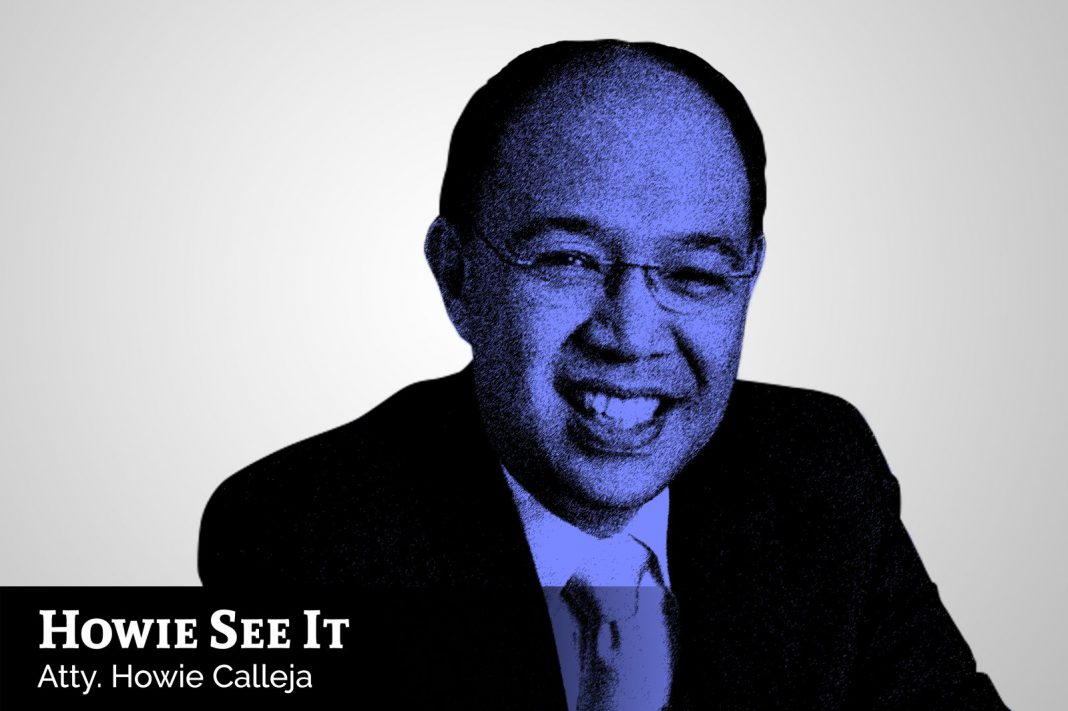By Atty. Howie Calleja
Just last night, the National Commission on Indigenous Peoples (NCIP) released a statement regarding the controversy surrounding a famous social media influencer who attempted to make a profit off of one of our living national treasures, Whang Od. It is, perhaps, the defining moment in a month-long discussion on the line between appropriation and appreciation.
For clarity: last month, social media was abuzz with the showdown between a Nas Daily and those who vehemently stood against any form of exploitation of our Indigenous People. This “he said-she said” became even more newsworthy as it fell on and around the International Day of the World’s Indigenous Peoples. A month from the celebration, and as the dust has now settled, it stands to reason that we now ask ourselves if we are effective in our safeguarding of the cultural heritage of Filipinos, especially in protecting the ancestral rights of our indigenous communities.
The scandal that prompted this line of questioning began to unfold on social media just a few weeks ago when a one Grace Palicas, the grandniece of the 104-year-old mambabatok and national treasure Whang Od, called out Nas and his online learning community “Nas Academy” for his inclusion of a “Whang Od Academy” that promised to teach subscribers the means and methods used in making her priceless traditional tattoos and the preservation of her tribe’s history. The issue, she claimed, was the Whang Od was not aware of any contract she had with Nas and his team, and didn’t understand translators who “explained” the details of the proposed Whang Od Academy. Nas himself fired back with a video showing Whang Od placing her thumbprint, alongside someone he claimed was her niece, acting as the translator.
A classic “two sides to the coin” story, is it not? After all, there had seemed to be merit to both sides. One comes from a relative trusted by Whang Od and her senior apprentice, another seems to have irrefutable proof that Whang Od herself gave the go-ahead. Now we’ve learned, through the statement of the NCIP (post-investigation), that Whang Od never gave consent and, even worse, the contract was “grossly onerous” on her end. The ownership of her voice, image, and whatever Nas would produce (being the culturally significant art of batok) would be owned by him in perpetuity. There is even a suggestion that the aforementioned thumbprint was forged.
There are still some on the side of Nas, saying that he must have truly believed there was consent because Whang Od’s niece was present – and he likely did it with the best of intentions. This author, however, is of the view that, preservation of culture trumps a foreigner’s assumption there was informed consent. But, before we dive into the standard of “consent” needed by Whang Od, we must assess why and how preservation of culture has become our primary concern.
Whang Od is, of course, known to be a living legend: other than being the oldest mambabatok (a traditional tattoo artist in the Kalinga district of the Cordilleras), she is largely credited with the preservation, and popularization, of the art form. The National Commission for Culture and Arts even awarded her the prestigious Dangal ng Haraya Award last 2018 for her championing the art of batok. While she is all of these honorable things and more, her art form is not hers alone – but rather a continuation of a tradition dating back centuries. As a member of the Butbut tribe, she is a member of one of the indigenous peoples of Kalinga and, as such, is granted special protection.
The fact is, our indigenous peoples and communities are a protected class and our laws reflect not just the duty, but the need to support and preserve their culture and traditions. One might say that the online classes would be a modern form of preservation, but to have Whang Od’s senior apprentice call this academy a “scam” absolutely demands our attention. This situation demands a review of the issue because of Palicas’ claims, and because our living legend should be protected. For only P750, less than half the price of a class Nas himself is teaching, can this really be for the sake of preservation? Or is it verging on exploitation, if not crossing the line entirely? Even if she, a woman more than a century old, went into this contract of her own free will and with the correct information provided by the translator, would this still grant Nas Daily the right to disseminate precious Filipino history and culture for the price of a family meal at McDo? Legal experts have argued that even Whang Od herself cannot put a price on the traditions.
As declared by Republic Act 8371 (or the “Indigenous Peoples Rights Act”, or simply “IPRA”), the right of indigenous communities to practice, and even revitalize, certain cultural traditions and customs goes hand in hand with the State’s mandate to protect this manifestation of their culture and grant them restitution of cultural and intellectual property that may be taken without their free and prior informed consent. This mandate necessarily ensures that the NCIP would play the role of protecting the IPs, in this case the Butbut tribe.
The role of the NCIP is, thus, not limited to just promoting culture, but actively preserving it. The regional director of the Cordillera Administrative Region office of the NCIP recognized that this particular practice is an expression of the Butbut tribe’s culture and traditions, thus it is that of the entire tribe. Though Whang Od absolutely has the capacity to enter into private contracts as an individual, the art of batok is not hers alone to share to the world. That is, assuming she entered into the contract of her own free will.
The developments of this story brought into light a claim from Whang Od’s senior apprentice that Whang Od herself did not understand what the translators were saying. This is clearly against the concept of “free and prior informed consent” as stated in IPRA, that their consent is only obtained (with regard to the commodification of cultural practices) after there is: a general consensus among the community; it is free of manipulation or coercion; the intent and scope of the activity is fully disclosed; and it is done in a language understandable to the community. Generally speaking, if Whang Od, or anyone in her community, claims she did not understand the extent of the contract, then it is not “free and prior informed consent”. Anything else is, so to speak, exploitation of our indigenous communities.
Though, again, some may say Nas Daily had good intentions, perhaps even aligned with that of the State – a special focus on “preservation” adopted for our modern society. But, the truth of the matter is, if it is not accepted by the entirety of the Butbut tribe, including the grandniece who called foul, it is not in the interest of protecting their cultural integrity. After all, the very essence of appropriation is rooted in lack of consent. Neither can we say that we should excuse Nas from not knowing the level of protection afforded to our indigenous peoples. Ignorantia legis non excusat. Ignorance of the law excuses no one.
Though many developments followed since the start of the “he said, she said” scandal, one that stood out was the Nas Academy’s removal of the Whang Od Academy. At the very least, it is a small victory against those that think this practice shouldn’t be vehemently safeguarded. But, as we have taken this past month to reflect on our treatment of those indigenous communities in the Philippines, this author’s hope is that we now draw a clear line between cultural appreciation and cultural appropriation.














